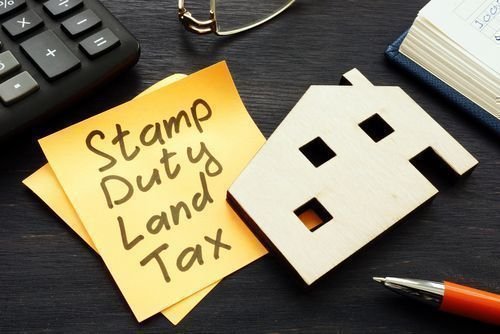Property Registry Process in Pakistan (Step by Step Guide 2024)
Saad Sheikh
December 15, 2023

1. Introduction to Property Registry in Pakistan
2. Importance of Property Registry
3. Understanding the Process of Registering Property
The process of registering property in Pakistan involves several steps that must be followed meticulously. Understanding these steps can help you navigate the complexities of property registry efficiently. Let’s dive into each step in detail.
- Step 1: Gathering Required Documents
The first step in the property registry process is to gather all the necessary documents. This includes the original title deed, sale deed, mutation letter, and any other relevant documents that prove ownership. It is crucial to ensure that all the documents are complete and accurate to avoid any delays or complications during the registration process.
- Step 2: Valuation of the Property
Once you have gathered the required documents, the next step is to get the property valued. A valuation certificate from a certified valuator is required to determine the fair market value of the property. This valuation certificate will be used to calculate the registration fee.
- Step 3: Paying the Registration Fee
After obtaining the valuation certificate, you need to pay the registration fee. The registration fee is calculated based on the value of the property and is usually a percentage of the property’s market value. It is important to note that the registration fee may vary depending on the province or city where the property is located.
- Step 4: Submitting the Application
Once the registration fee is paid, you need to submit the application for property registration along with all the required documents to the relevant authority. The application should be filled out accurately and completely to avoid any rejections or delays. It is recommended to seek professional assistance to ensure that the application is error-free.
- Step 5: Verification and Approval Process
After submitting the application, the relevant authority will verify the documents and conduct a thorough investigation to ensure the authenticity of the ownership and legality of the property. This process may involve site visits, interviews, and document verification. Once the property is verified, the registration authority will issue an approval for the property transfer.
- Step 6: Execution of the Property Transfer Deed
Once the approval is received, the property transfer deed needs to be prepared and executed. The transfer deed is a legal document that transfers the ownership rights from the seller to the buyer. It should be drafted carefully and reviewed by legal experts to ensure its accuracy and compliance with the law.
- Step 7: Completing the Registration Process
The final step in the property registry process is to complete the registration. This involves signing and stamping the transfer deed, paying any remaining fees, and obtaining the registration certificate. The registration certificate serves as proof of ownership and is an essential document for any future transactions or disputes.
4. Cost and Fees Associated with Property Registry in Pakistan
5. Common Challenges and Issues in Property Registry


6.Benefits of Hiring a Professional for Property Registry
7. Conclusion
Recent Posts
FAQ's
Property registry fees in Pakistan can vary depending on several factors, including the province, location (urban vs. rural), property type, and seller status (active taxpayer vs. non-filer). However, here's a general overview of the major fees involved:
Main Fees:
- Registration Fee: A flat fee of 1% of the property's total value paid by the buyer.
- Stamp Duty: This is the main tax levied on property transactions, with rates varying by province and location. In Punjab, for example, it's 1% for urban areas and 3% for rural areas. Sellers also pay an additional fee based on their tax status:
- Active Taxpayer (ATL): 2% of the property value.
- Non-filer: 4% of the property value.
- Capital Value Tax (CVT): Applies in some provinces like Punjab at a rate of 2% of the property's declared value.
Additional Fees:
- Town Fee: Varies based on the location and may not be applicable everywhere. In Punjab, it's 1% of the property value.
- Mutation Fee: A nominal fee charged for updating land records after the sale.
- Miscellaneous Fees: May include search fees, copying charges, and stamp paper costs.
Here are some resources for specific fee information:
- Punjab Land Record Authority: http://rodportal.punjab-zameen.gov.pk/
- Revenue & Estate Department - Khyber Pakhtunkhwa: https://revenue.kp.gov.pk/
Things to remember:
- Always verify the latest fee rates with the relevant authorities in your specific area.
- Fees can be subject to change, so it's best to consult a real estate professional or legal advisor for accurate and up-to-date information.
This information is intended for general guidance only and cannot replace professional legal or financial advice.
Check land records of Pakistan properties online using these steps:
The Punjab Land Record Authority website (https://www.punjab-zameen.gov.pk/) is the perfect resource for checking property registry information online in Punjab. Here's a step-by-step guide for you:
Step 1: Choose your search type:
On the homepage, you'll see three main search options:
- Search by Khasra/Khata Number: This is ideal if you have the specific property's registration number.
- Search by Owner Name: Use this if you know the owner's name but not the registration number.
- Search by Location: Choose this option if you only know the general area of the property.
Step 2: Enter your search details:
- Khasra/Khata Number: Simply enter the number in the designated field.
- Owner Name: Enter the full name of the owner or part of the name for broader results.
- Location: Choose the district, Tehsil, and Patwar Circle from the dropdown menus. You can also refine your search by entering the village name (if applicable).
Step 3: Click "Search":
After entering your chosen search details, click on the "Search" button.
Step 4: View the results:
The system will display a list of properties matching your search criteria. Each entry will show details like:
- Property location (Khasra number, village, etc.)
- Owner name(s)
- Area size (Kanals, Marlas)
- Land type (Agriculture, Residential, etc.)
- Ownership status (Registered, Disputed, etc.)
Step 5: Access further details:
Click on the desired property from the list to view its detailed "Fard." This document provides comprehensive information about the property, including:
- Ownership history
- Encumbrances (mortgages, liens, etc.)
- Mutation (transfer) records
- Current market value assessment
Useful Tips:
- You can refine your search by applying additional filters within each search type (e.g., ownership year, land type).
- The website offers a downloadable "Online Fard" tool for obtaining a printable copy of the property details.
- For assistance or technical issues, you can contact the PLRA helpline at 042-111-22-22-77 or check their FAQs section.
I hope this guide helps! Let us know if you have any other questions or need our assistance. Share this guide with the ones who need such information.
